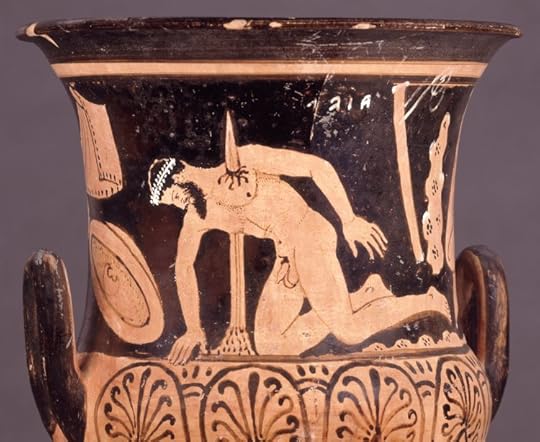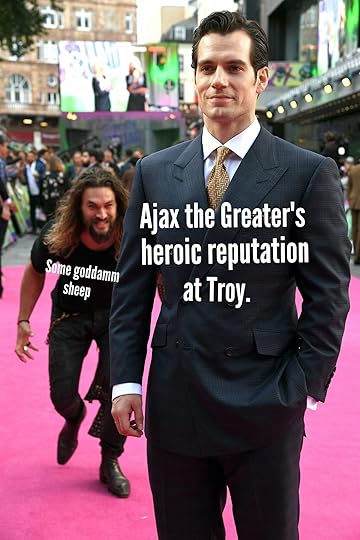What do you think?
Rate this book


Unknown Binding
First published January 1, 441

Yet I feel his wretchedness.Thus speaks Odysseus, with regard to Aias who has – in a blind and savage spell of madness, inspired by Athena – slaughtered his fellow Greek's spoils of war (cattle, sheep, etc.), while thinking that he was actually taking revenge on Menelaus and Agamemnon after they had corruptly awarded the fallen Achilles' armor to Odysseus (instead of to him, to Aias—the superior warrior). The play opens with this event, which has dishonored Aias and drives him to suicide once he becomes aware of what he has done. The action then centers on whether or not Aias should be buried. The play has some excellent dialogue, and the themes of revenge, friendship, and the extent to which animosity may be pursued were especially intriguing.
My enemy, yes, but caught up
in a terrible doom. My doom, too.
I see that now. All we who live, live
as ghosts of ourselves. Shadows in passing.
